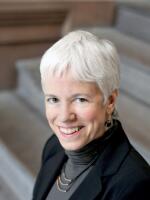A new proposal by the state ethics commission that could restrict campaign donations is raising some questions.
At the Joint Commission on Public Ethics most recent meeting, commissioners discussed a proposal that could change New York’s open ended campaign finance rules. It would ban state officials from taking campaign donations from anyone who that elected official is investigating, or auditing. It would also them from asking for donations from anyone that they are currently suing.
Most of the commissioners did not want to make the draft proposal public, and were intending to talk about it in a closed door executive session. However, one commissioner, Marvin Jacobs, objected. He pointed out that the advisory will be made public eventually anyway.
“One of the big items of criticism against this agency is this business of secrecy” said Jacobs.
Jacobs was appointed by former Assembly Speaker Sheldon Silver, who is currently on trial for corruption.
JCOPE has become known for frequent bickering among commissioners. The next several minutes involved intense discussion over whether to talk about the advisory opinion in public, and whether a vote was needed. Finally Commission Chair Daniel Horowitz, sounding exasperated, settled the matter.
“You know what, if you want to vote, fine,” Horowitz said.
Horowitz was appointed by Governor Cuomo. JCOPE has been criticized for having the appearance of being controlled by the governor. Cuomo allies have served as chairs and executive directors. There are questions about who exactly would be subject to the proposed new rules, and whether Cuomo and state lawmakers would have to abide by the new principles at all.
Among statewide officials, only the Attorney General, Eric Schneiderman has subpoena power and can conduct investigations, and the Comptroller, Tom DiNapoli , has the power to audit. Cuomo has had at times, a rocky relationship with both men.
Susan Lerner, with Common Cause, also wonders who would or would not be covered.
“It’s rather hard to tell,” Lerner said. “There is a suspicion that this is a body that is setting up a rule that will very definitely apply to the two statewide elected officials who do not have appointees on JCOPE.”
But Lerner says it still is a good “common sense” idea to separate campaign donations from government investigations.
“It’s an important step forward,” Lerner said.
The Common Cause executive director says she’s happy that the draft advisory opinion is now public, and says perhaps there will now be pressure to expand the rules to include the governor and the legislature. The proposal would tweak a set of rules adopted several years ago. She says if the entire law was re examined, it might be interpreted to ban the governor’s plan to sell Mets World Series tickets for $5500 each as part of a fundraiser. Cuomo canceled the promotion in favor of allowing New Yorkers to buy the tickets at market value.
Meanwhile, a panel tasked with offering ways to improve the ethics commission warns against allowing Governor Cuomo to have too much control in the appointing of its next executive director. The report says JCOPE should “take steps to avoid any appearance of interferenceby any of its appointing authorities in the hiring of the executive director or staff”.






